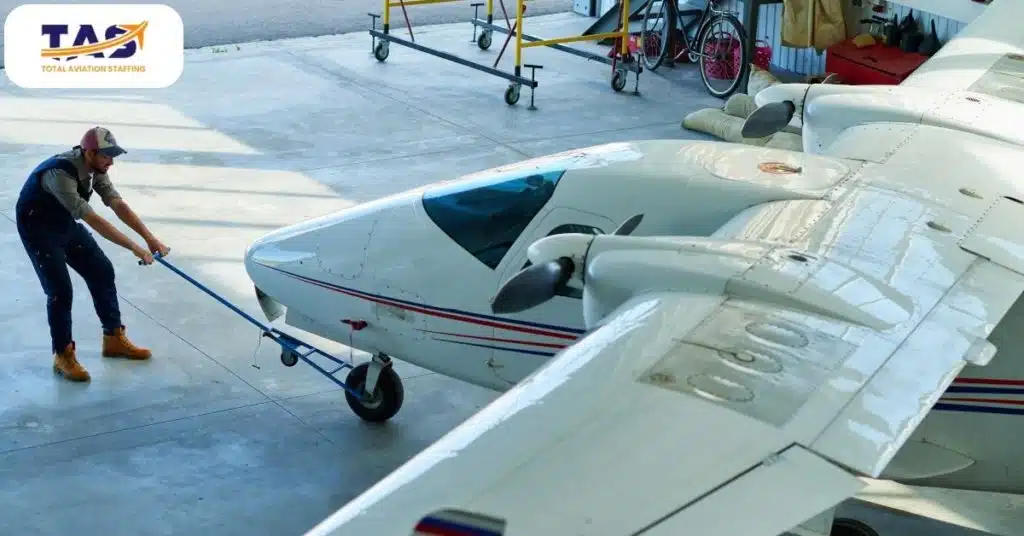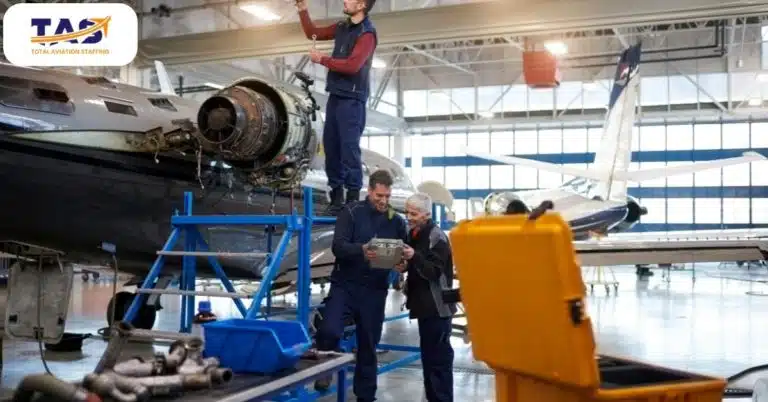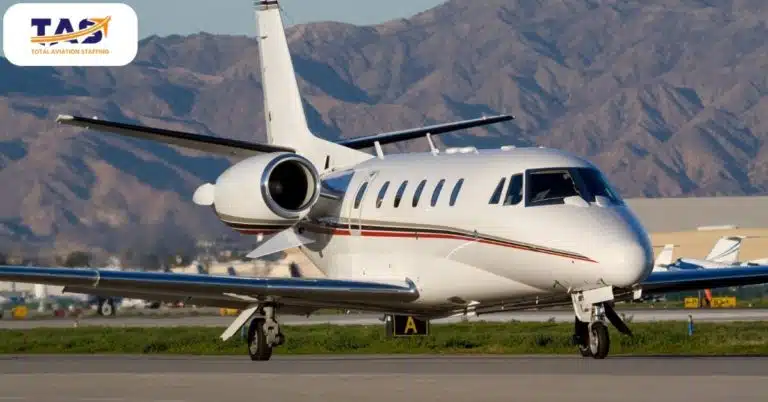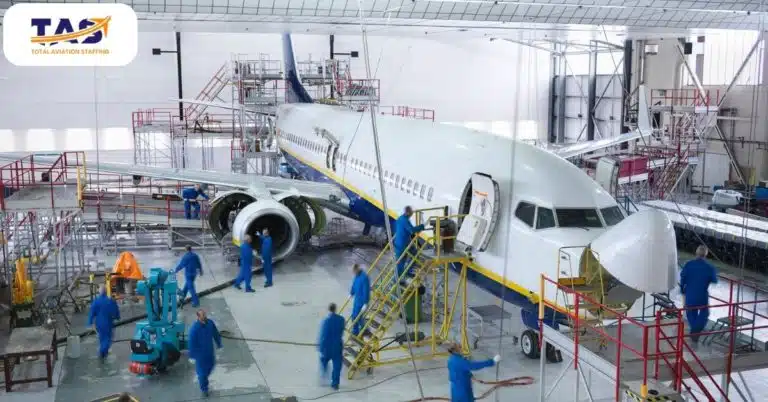The Different Types of Career Paths Available for Aircraft Mechanics

Are you looking to pursue a career in aircraft mechanics? If so, then you’re in luck! Aircraft mechanics are an essential part of the aviation industry, responsible for maintaining and repairing aircraft and components. Knowing the different types of career paths available for aircraft mechanics can help you determine which one is best suited to your skills, interests, and goals. In this blog, we’ll explore the different types of aircraft mechanics, their job descriptions, and what you need to do to become an aircraft mechanic. Read on for more information!
1. Aircraft Mechanic
An Aircraft Mechanic has a wonderful opportunity to work on and maintain aviation aircraft. Whether servicing commercial planes or military hardware, these professionals must have in-depth knowledge of aviation industry protocols and aviation mechanics.
It’s a demanding profession requiring precision and strength due to the intricate designs of engines, airframes, and avionics systems needed to assemble and fix aircraft. There are very promising career paths available for aspiring Aircraft Mechanics, such as engineering roles at international aviation companies or joining the US Air Force or Coast Guard.
No matter which option is chosen, being an Aircraft Mechanic can be an incredibly rewarding way to serve while making a living.

2. Aviation Technician
Aviation Technicians are professionals who specialize in the maintenance and repair of airplanes, helicopters, and other aircraft. This involves inspecting various parts of the aircraft to ensure they are in working order before departure. Aviation Technicians must also be able to diagnose and fix any malfunctioning components so that flights can take place safely and without issue.
Additionally, these technicians may be tasked with replacing parts or components of an aircraft engine or navigation system. This requires a thorough understanding of the various systems in order to properly identify and address any malfunctioning issues.
Aviation Technicians have exciting career paths that could lead to roles such as maintenance supervisors, engineering managers, and safety inspectors.

3. Avionics Technician
Avionics Technicians work on the electronic systems of aircraft. This includes a wide range of tasks, from testing and repairing radio equipment to programming navigation computers. Avionics Technicians must be knowledgeable in both avionics and electrical engineering so that they can effectively identify and resolve any issues with an aircraft’s electronics.
In addition to technical knowledge, Avionics Technicians must have excellent problem-solving and communication skills so that they can accurately diagnose any issues with the aircraft’s electronics.
Those who excel in this field could pursue higher positions such as Quality Assurance Engineers or Engineering Managers.

4. Factory Worker
One career path for Aircraft Mechanics is a factory worker. As a factory worker, aviation professionals are responsible for maintaining the reliability and safety of aircraft in both manufacturing and repair processes.
This may include inspecting parts or engines, performing maintenance on aircraft components, and assisting in the overall manufacture of aviation products. Factory workers must possess knowledge of aviation technology as well as safety protocols, manual dexterity, and strong communication skills needed to ensure that parts meet aviation standards while communicating with clients.
Working as a factory worker provides important job experience and in-depth aviation training essential for furthering an Aircraft Mechanics career path.

5. Airframe and Powerplant Mechanic
An Airframe and Powerplant (A&P) Mechanic is a specialized Aircraft Mechanic who works on both the airframes and powerplants of an aircraft. This requires extensive knowledge in aviation mechanics, physics, engineering, and technology in order to properly assemble and maintain aviation components.
As part of their roles, A&P Mechanics must be able to diagnose, inspect, and repair any issues with the airplane’s airframe or powerplant. This could include replacing damaged parts or components as well as troubleshooting malfunctioning systems.
Those who are successful in this role have immense career opportunities available such as aircraft maintenance supervisors, quality assurance engineers, and aircraft maintenance technicians.

In conclusion
There are many career paths available for Aircraft Mechanics. Those who pursue this field can look forward to professional and personal growth as they move up the ranks in their respective fields. Ultimately, with dedication and hard work, an Aircraft Mechanic’s career path could provide an incredibly rewarding experience.
